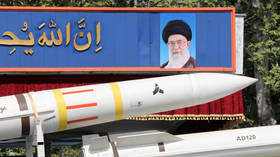Glimmer of hope for media freedom in Afghanistan
Amid the ongoing violence in Afghanistan, it is boom time for the media there. As only an estimated third of the population is literate, local radio stations are on the increase, while newspapers lag far behind.
Under the Taliban, there was only one station, but now there are dozens hitting the airwaves, despite being put under pressure by the government.
Radio Zabul’s show host Nisar Ahmed takes his listeners’ comments seriously. Five years ago, he and his team broke news themselves by becoming the first local station in the country’s second largest city, Kalat.
Today there are some 90 radio stations across Afghanistan, as well as 15 daily newspapers and 20 television channels.
“I like doing something for my people. I get so many letters from listeners telling me about the problems they have: no electricity, no water. Afterwards, I go to the government, I tell them what is happening and make sure they do something,” Nisar Ahmed says.
Radio Zabul broadcasts to listeners living in the remote mountainous area of Kalat city, and it is fast becoming a model for future Afghan radio.
“I listen to the music, and the news tells me what is going on in my province. I like it very much. I often write to them and ask them to play my favourite songs. I send them jokes,” says Nazar, radio Zabul fan.
However, there is only so much lobbying the radio can do as, like most Afghan media, it is government-controlled in a country with little press freedom.
The international media watchdog “Reporters Without Borders” ranked Afghanistan 28th from bottom out of 175 nations last year in terms of press freedom, which is an improvement from the previous year.
Some say that given the country’s troubled past, it is actually surprising it scores that high at all.
The Afghan Center for Social and Opinion Research says that four out of five Afghans rely on radio for their news, with only half that number having access to television.
Newspapers have even less reach, with statistics suggesting less than 30% of the population can read.
That is why Abdullah Abid has set himself a difficult task. He is in the final stages of putting together a magazine that he hopes will help change the culture of his readers.
“We will send it to schools so teachers can read it to their students, and those students will read it to their parents and so on. The main problem we have in Afghanistan is lack of education,” Abdullah Abid says. “Most people never went to school and are not interested in sending their children to school. We have to change that.”
Yet change is slow. Last month the Afghan government was criticized for limiting press freedom when it banned live reporting from the aftermath of suicide bombings, arguing it helped militants and risked the lives of journalists.
Nonetheless, a leading newspaper journalist says the situation is way better compared to 14 years ago, when the then-ruling Taliban shut down television and allowed only one radio station to broadcast, with output limited to religious programmes and Taliban propaganda.
“We never had the concept of independent media throughout our history and it has just started. It is a new phenomenon in Afghanistan after the fall of Taliban, so I believe that with the pace we are going, this is much more encouraging,” says Dr. Hussain Yasa, Afghanistan Group of Newspapers chairman.
Dr. Yasa admits to sometimes being threatened by fanatics or indirectly being pressured by government to voice a particular opinion, but it is a small price to pay when the building of a media culture is still in its infancy.












